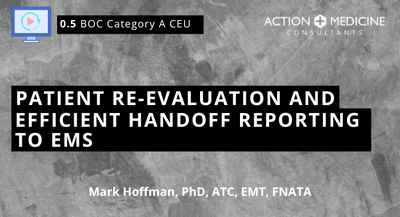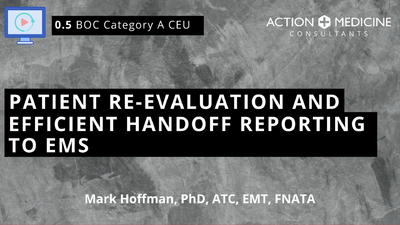General Course Information
Learning Material
32:02
AI Chat Bot
The chat bot may hallucinate. Please double check results.
Patient Re-evaluation and Efficient Handoff Reporting to EMS › Learning Material
Presentation (Video)
Updated Apr 6, 2024
Copyright © 2025 Action Medicine Consultants, LLC
___MESSAGE___
___MESSAGE___


